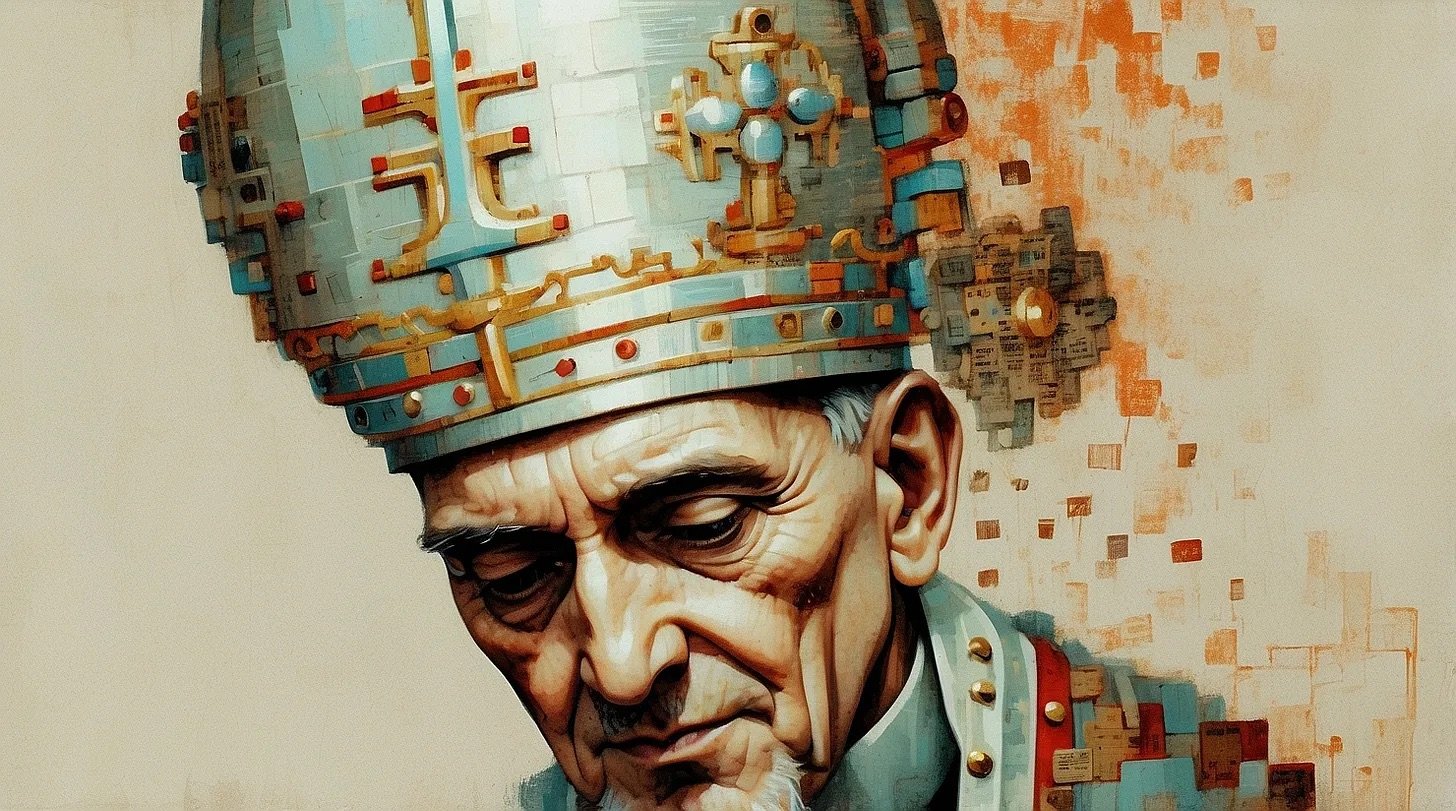The Rooster In Flight - A Substack Article
The Pope of Pixels, Profane Power: Trump’s Papal Aspirations in an Age of Artificial Intelligence
By: Wynand Johannes de Kock
May 6, 2025 
I first saw the image early morning, just as Marian and I settled into our daily ritual of coffee before the day unfolded. Steam rising from our cups, sunlight barely cresting the glass doors that opens onto our deck.
"Have you seen this?" Marian asked, turning her phone toward me.
There was Trump’s face-imposed onto the Pope’s white robes. His finger pointed upward in that way that could mean “listen to me” or “God says so.” Hard to tell the difference, which was probably the point. The cross hanging from his neck looked too perfect, too shiny-a dead giveaway of AI artwork. But what really got me was his eyes: empty yet calculating. Like someone trying to look holy while mentally celebrating his genius to dominate the next news cycle.
This wasn’t some random internet meme. The White House-the actual, official White House-shared this image barely a week and a half after Pope Francis died. I nearly choked on my coffee. Talk about being tone deaf. While Rome was preparing to choose a new Pope, here comes this digital bombshell, mixing up symbols of church and state like a spiritual Molotov cocktail.
The image was shared from official channels and Trump’s Truth Social account exactly eleven days after Francis drew his last breath. The cardinals were already packing their red cassocks for conclave, and here was the White House turning what might have been merely tasteless into something deliberately provocative. I set my cup down carefully, watching the storm clouds gather in the comments section, symbols of Rome and Washington colliding like weather systems.
Perhaps I shouldn’t have been surprised by the image. Just a few days before, Trump quipped in response to his first choice for Pope, “I’d like to be pope, that would be my number one choice.”
Interested in completing the article? Follow Wynand on Substack